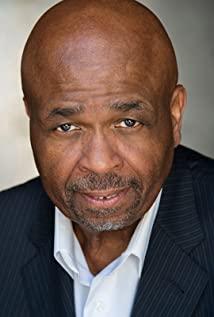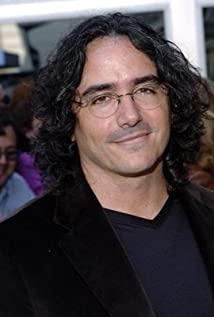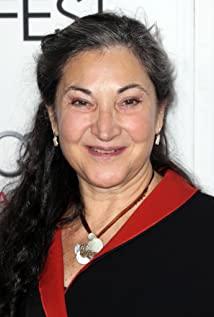For more than 20 years since the American movie "City of Angels" was released, a classic love story between angels and mortals has been moving audiences.
It should be said that it is not the first time that Hollywood tells the legend of an angel yearning for the world, but the image of the angel it creates is different from the angels in previous literary and artistic works, which makes the film have enduring artistic charm.
The storyline is simple, which is actually more conducive to the depth of the warm and tragic narrative.
Seth is an angel of death who can only be seen by the dying.
Seth was deeply shocked by Maggie's firm and persistent gaze when he was about to take away a patient who was being rescued by doctor Maggie at a hospital in Los Angeles. He fell in love with this beautiful, kind and confident female doctor.
By God's supreme will, mortals cannot see angels unless they show up voluntarily. Seth ventures out to Maggie, who also falls in love with Seth.
But how to stay together and how to achieve the existence of love has become a difficult problem.
Through a friend in the hospital, Seth discovers a startling secret that he can become mortal by jumping from a high place with a strong will. In order to stay in love with Maggie, Seth decides to give up immortality.
After the fall, he found Maggie and truly felt the existence of love and happiness. However, just one night later, Maggie died suddenly in a car accident.
When the angel finally gained free will and became a mortal, the mortal he loved went to the angel's world because of death.
Prophet: by the will of God
Angel, the English name Angel, is derived from the Greek word angelos. In Western religions, angels are spirits who serve God or God, and God and God send them to help those in need of salvation.
Like all angels, by the will of God, the angelic image of Seth was first filled with transcendental prophets.
As he walked to the hospital, he knew who was going to die. However, since the angel has no mortal thoughts and feelings, when performing his duties, he does not have any joys or sorrows that cause the separation of life and death in the world.
This seems to be inconsistent with the identity of an angel and seems off-topic.
Since angels are prophetic a priori, and since angels have always been considered superpowers to save mankind, he says that the dead are "alive, just in a different way."
Perhaps this "digression" is just a strategy to delay the ending, a way to complicate the time in the work, a way to escape or escape forever, escape what? Of course fleeing death.
The angelic prophet was powerless in the face of human death, and his free will depended on the will of God. In the supreme God, angels have no possibility of free will except to obey and wait.
As Maggie said: "I feel a greater power than you and me."
That greater power undoubtedly came from the prophets of God, and had nothing to do with the angels. Gibran said in "The Prophet": "You wish to know the mystery of death, but how can you find it except in the heart of life?"
Angels exist in people's imaginations, and people's imaginations endow angels with supernatural powers, such as prophets of death. In fact, human beings express their fear of unknown death through artistic means, making angels a powerful tool for their hearts.
However, "God", the supreme power-holder who rules the whole world by his own will, makes the angelic prophetic transcendence full of limitations.
When Maggie tried her best to rescue a patient suffering from a heart attack, God's will had already been given. Maggie held the patient's heart and watched a life pass away, and the angel, could neither show up nor prolong his time on earth.
He turned out to be just a pawn in the hands of God. He didn't even know why people cried. He couldn't experience the wonderful feeling. Cutting his fingers with the sharpest knife couldn't make him shed a drop of blood.
Among the "God-Angel-Man" three, God is omniscient and omnipotent, and his prophets are accomplished by angels. Humans, on the other hand, can neither see angels nor God, but in the face of the unknown, they are full of subjectivity.
This subjectivity constitutes a contradiction with the angel's "false prophet" in the film.
Irony: The Two Polarities of Narrative
The narrative strategy of "City of Angels" always achieves irony between the two poles, allowing the angels to seek a breakthrough in the predicament.
black and white irony
Whether in Eastern or Western public experience, doctors have been described as "angels in white" who save lives and lives. The image of an angel is humanoid in religious descriptions, but with a halo on the head and wings on the back, and the cherubs in the Bible even have six wings.
The angel Seth, as the messenger of death, wore the same black clothes. The angel of death is black, and the white "angel" is white, but one black and one white reflects the struggle of human beings in the face of life and death.
Not even God can deprive man of his strong will to yearn for life, and even God cannot deprive man of his right to love.
In the battle of black and white, the "black" as Seth was captured by the "white" as Maggie, and the love of the world presented the angel with enchanting beauty. Make the "black" rather give up immortality, give up the identity of an angel, and disarm the "white" and the love in the world.
"Darkness" represents death and despair, while "whiteness" symbolizes a beautiful, holy and pure life. Here, the Angel of Death has lost the "halo on his head" of the religious narrative, and even his wings have been edited and castrated clean by the narrative strategy.
If eternal life is nothing but permanent "darkness", then what is there to yearn for and pursue in such eternal life?
The irony of love and non-love
The angel is the closest to God, and he is high above, but he has no pain, no touch, and even the taste of a pear.
The irony is that he cannot experience the feeling of human love relative to the feeling of a human being with all kinds of emotions. And love is the highest form of all feeling.
When Seth decided to give up his identity as an angel and "fall" from a height, it was quite ironic that he touched the blood on his hand after falling and woke up, showing an extremely happy expression - even the pain in the world is envied by angels, this is " man" victory.
Angels, however, can be freed from the will of God and fall for love, and love is higher than God who is not love.
The image of angels is expressed in an ironic way, which makes this film have a touching quality, and completes a profound inspection and reflection on human love.
The angel did not have love originally. Relatively speaking, "non-love" made him so empty and poor, and he could not be anyone's friend and lover. Therefore, human love is the most charming emotional situation, and even the angels who have no desire and no desire will still be moved.
The irony of life and death
When the angel gave up eternal life to gain temporary human life, the one he loved lost his life and went to die.
This irony of life and death makes the angel's abandonment more full of the beauty of resolute fortitude, and also makes him face new difficulties after getting out of a predicament.
At the extremes of life and death, angels and humans are powerless to choose. God gives with one hand and takes with the other, and yet, the greatness of love is precisely because it is not for perfection, sometimes just for a short night, or even for a meeting of eyes.
This is also the angel's creative understanding of the "thoughts" and "feelings" of people he hears repeatedly. If death is also a feeling, the feeling of life is too rich and mighty, and it is worthy of the single-minded pursuit of angels.
The first time to smell the fragrance of flowers, the first time to breathe, the first time to taste the taste of pears, the first time to feel pain, the first time to love, and the first time to say goodbye!
In the face of the rich life and painful death of human beings, how pale and boring the eternal life of angels seems at this moment!
Ascension: Love and Life and Death
The sublimation of the angel's image lies in the detachment of life and death in the film's narrative, which composes a soul-stirring elegy of love, which is transformed into an eternity achieved by angels and mortals under the premise of love, detached from life and death, love, higher than everything.
Although this song of love is deeply tragic, it presents a detached light. Under the free will of human beings, even if the body dies, the spirit is immortal.
"He's still alive, just in a different way." Then Maggie asked, "Who are we fighting?" Now there is an answer: in the struggle between life and death, the power of love will eventually transcend life and death, This will be the long-standing desire and eternal proposition of mankind.
In the sublimation and detachment of life and death, the film also contains the metaphor of "pear" that appears many times in one shot. Since the angel has no sense of taste and touch, he does not know what a pear is.
And in the bridge section when he rushed to the scene of the car accident, he first saw a pear rolled out of Maggie's backpack on the mountain road. The appearance of this pear, on the one hand, told him that something happened to Maggie, and on the other hand, it also made him feel the existence of "pear" in the most textured way.
From the perspective of Chinese people, "li" and "li" have the same pronunciation, so Chinese people do not share pears (li) with others when they eat pears.
From a Western perspective, the "pear" is the shape of the womb, the crystallization of human love, and the initial harbor for everyone who comes to the world.
Angels and pears have a profound connection here. Although the angel comes from heaven, he can finally feel love and be loved, and enjoy the juicy taste of "pear". From this, he can also taste more ups and downs in the world.
This metaphor makes the image of the angel no longer pessimistic, but has the dual spirit of sensibility and rationality, which enriches, sharp and profound the transcendence of life and death, and reflects the great subject spirit of man.
Love and death are closely related, and in Latin, the word "amore" for love is often associated with the word "amret" for death.
When we fall in love, the world around us begins to shake and change, and the shadow of the joy of love is often death, and total love is sometimes accompanied by total annihilation.
If the inhuman nature of human existence is based on the premise of destroying the ideal of human life, then in the face of death, the spirit of the subject manifested by angels and mortals makes this detachment more realistic.
Even if God's will is irrefutable, human free will will eventually detach the soul from the body in the name of love and live forever.
When Maggie met her death, she had no regrets, just like Andersen once said: "I never imagined that I would be so painless and lucky to leave this world."
This is the power of love.
The detachment of life and death and the experience of death in the image of angels are different from all the concepts known to human beings, such as physiology, psychology, ethnography and even theology . Possibilities" , people have to face death - to die.
And to go beyond life and death in the name of love is the deep meaning of the film's theme.
Love endows man with a stronger subjectivity, which ultimately renders death irrelevant.
Love will make the dead "eternal life", Maggie may only have time to rejoice with Jun overnight, and Seth is about to endure an indefinite parting. But in their limited lives, they all got what they wanted.
Love finally eliminated people's fear of death, and also gave angels a pair of "wings" that they never had before.
There are various forms of artistic expression. The infectious angel image in "City of Angels" shows that even if you choose an ordinary perspective and tell ordinary stories, you can still move people's hearts and become an unsurpassed classic.
View more about City of Angels reviews











